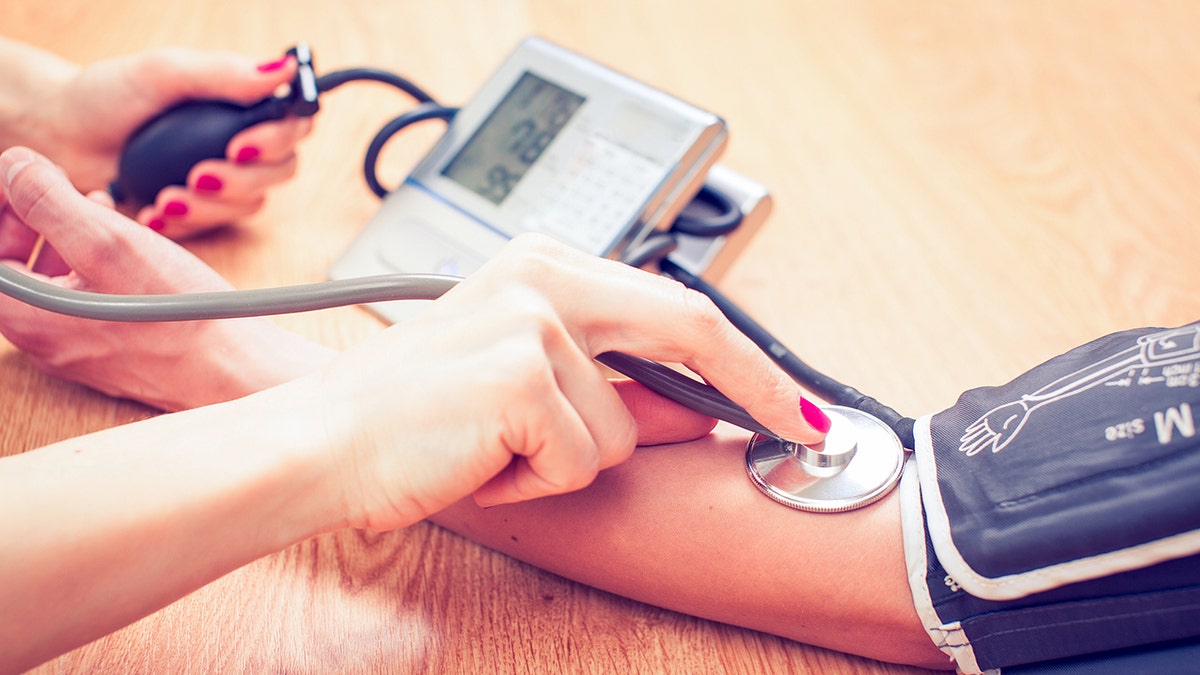Blood
High blood pressure a concern worldwide, leading to death, stroke, heart attack: How to stop a ‘silent killer’
The World Health Organization (WHO) has just published its first report on the global impact of hypertension and how people can win the race against this “silent killer” that often presents without symptoms.
“This important report from WHO shows how high blood pressure is common and growing in prevalence, but is under-detected and under-treated globally,” Dr. Deepak L. Bhatt, director of Mount Sinai Heart at the Icahn School of Medicine in New York City, told Fox News Digital.
“This is despite the existence of known lifestyle measures (such as dietary salt reduction and weight loss) and generic medicines that are effective in controlling blood pressure in the majority of patients if implemented appropriately — which is what health care systems around the world need to do now,” he added in an email.
DOCTOR SHARES 3 SMART TIPS FOR STAYING HEALTH IN THE MONTHS AHEAD: AND THEY MAY SURPRISE YOU
High blood pressure affects one in three adults globally.
It has serious health consequences if it’s left untreated. Those consequences include stroke, heart attack, heart failure and kidney issues, according to the report.
A doctor checks a patient’s blood pressure. The WHO says the number of people living with a blood pressure of 140/90 or higher or taking a medication to treat it doubled from 1990 to 2019 from 650 million to 1.3 billion. (iStock)
Dr. Marc Siegel, a professor of medicine at NYU Langone Medical Center and a Fox News medical contributor, commented to Fox News Digital on the issue, “High blood pressure is simple and important to understand.”
He said, “The heart is a pump — and it is pumping against resistance. The greater the resistance from the arteries, the more pressure on the heart and the more likely it could fail, or be damaged by insufficient blood flow or develop an abnormal rhythm and throw off a clot (stroke) or increase pressure on the kidneys, which causes them to fail.”
Approximately 120 million Americans — or 48% of adults in the U.S. — either have Stage 1 hypertension or are taking medication for hypertension, but only 1 in 4 adults have their blood pressure under control.
He noted, “High blood pressure affects multiple organs, damaging them.”
What is blood pressure?
The arteries carry blood from the heart to other parts of the body, according to the Centers for Disease Control and Prevention (CDC).
Blood pressure is the pumping of the blood against the wall of arteries, according to the CDC.
In 2017, the American College of Cardiology and the American Heart Association lowered the threshold of what defines high blood pressure to at or above 130/80 mmHg, which is known as Stage 1 hypertension.

A nurse takes the blood pressure of a hospital patient. “Hypertension can be controlled effectively with simple, low-cost medication regimens, and yet only about one in five people with hypertension have controlled it,” WHO Director-General Dr. Tedros Adhanom Ghebreyesus, noted in a news release. (iStock)
Approximately 120 million Americans — or 48% of adults in the U.S. — either have Stage 1 hypertension or are taking medication for hypertension, but only 1 in 4 adults have their blood pressure under control, according to the CDC.
Stage 2 hypertension is defined as 140/90 mmHg or higher.
The WHO notes that the number of people living with a blood pressure of 140/90 or higher or taking a medication to treat the condition doubled from 1990 to 2019 from 650 million to 1.3 billion.
The American Heart Association (AHA) recommends that you “know your numbers” if you think your blood pressure is in an unhealthy range.
AHA recommends a daily sodium intake of no more than 2,300 milligrams (mg) a day but ideally no more than 1,500 mg per day for those with high blood pressure.
The CDC notes the average American has more than 3,400 mg of sodium every day, but one simple lifestyle change is to skip the table salt.
In 2013, all 194 countries who are members of the WHO committed to reducing sodium intake by 30% by 2025, but only 5% have implemented comprehensive strategies so far, according to a recent report.
5 GREAT WAYS THAT MORNING EXERCISE CAN SET YOU UP FOR A BETTER WORKDAY
The association also recommends people look for the “Heart-Check mark” on certain food packaging that meets AHA criteria for saturated fat, trans fat and sodium for a single serving of the food product for healthy people over age 2.
Getting exercise is also important to control one’s blood pressure

Weekly physical activity can be spread out throughout the week, with an easy plan to remember perhaps 30 minutes a day for at least five days a week. People should also participate in muscle-strengthening activity at least two days each week, the American Heart Association says. (iStock)
This equates to at least 150 minutes each week of moderate-intensity physical activity, such as brisk walking in most healthy people.
The weekly physical activity can be spread out throughout the week, with an easy plan to remember perhaps 30 minutes a day for at least five days a week.
CLICK HERE TO SIGN UP FOR OUR HEALTH NEWSLETTER
People should also participate in muscle-strengthening activity at least two days each week.
CLICK HERE TO GET THE FOX NEWS APP
More than 1,000 people die from strokes and heart attacks every hour — yet most of these deaths are preventable by controlling blood pressure, according to Dr. Tom Frieden, president and CEO of the organization Resolve to Save Lives.
Melissa Rudy of Fox News Digital contributed reporting.
For more Health articles, visit www.foxnews.com/health.

